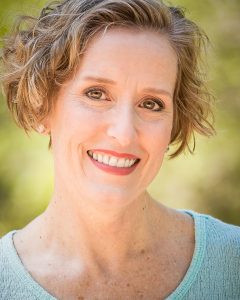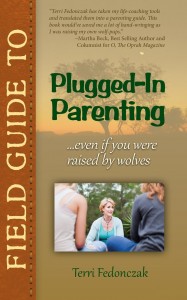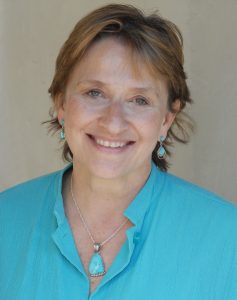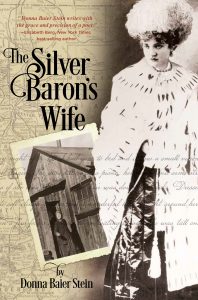
by Jenna | Feb 28, 2017 | Writing Articles
As writers, we're often either besieged by advice about our writing careers and writing projects or actively seeking out feedback on our writing or our career trajectories. Rare is the writer who never does so. And yet, when we give it the chance, our deepest writing wisdom comes from within. This isn't to say that feedback, mentoring, and coaching isn't also valuable, but at the end of every long writing day or hard writing decision, the person we have to answer to is ourselves. I've worked with mentors who don't understand this, or care, and I've worked with mentors who do. The difference can be astonishing.
I began this year with an intention to focus on Deep Work. (I've since read the book by that name, which I'll write about in the near future.) I've devoted the early part of this year to clearing the decks so I can go deeper and deeper into my writing over the course of 2017. In doing so, I had the opportunity to once again test the Writer's Guided Visualization I developed for the Ultimate Writer's Toolkit.
Our Most Profound Source of Guidance Comes From Within
The visualization is based on my early work as a coach, when I created my first Embrace Your Essential Self coaching program. I designed the processes and visualizations in that program to help people access their own deepest wisdom and get in touch with the essence of who they are. Last year I had the privilege of walking a client through that process again, something I don't "regularly" do these days, but which I found bringing both of us to the point of tears again and again -- the type of tears that spring into your eyes because you're in the presence of that which is profound, wise, and greater than yourself. I was reminded why I loved that early work of mine so very much, and even why I was called to coaching in the first place: Helping people touch the power of who we truly are and how we are called to be in the world is an incredible honor.
I created the Writer's Guided Visualization from that foundation.
When I used the visualization again myself last week, it brought home to me that my mind is often filled with chattering voices, ideas, opinions, fears, doubts, and self-sabotaging impulses that are hard to hear through or filter out. Before I listened to the 10 minute track, I scribbled down a few questions about my own writing trajectory, including:
- What's the next best writing project for me to tackle?
- What will move me closest to the path I want to be on?
The answers I received, as I quieted my mind and listened to the wisdom my inner Writer Self had to share with me, were simple in some ways, and profound in others. Isn't that often the truth with inner wisdom? It brings that sense of peaceful, quiet knowing to us.
Because my Writer Self knew about my intention to go deep, she knew just what to say about where my deep work lies. I've been continuing the conversation with her since our last meeting, as I fall asleep each evening.
Two Powerful Methods to Access Your Inner Writing Wisdom
If you want to experiment with this yourself, here are two ways you access your own inner writing wisdom.
- Guided Visualization or Meditation. Visualization, or meditation, if you prefer the term, is my favorite method for helping myself and my clients access our inner wisdom. You can do this on your own, or I can walk you through it in the Writer's Guided Visualization in the Toolkit. Start by jotting down your questions, then relax your mind and body with a simple progressive relaxation, and then have a brief conversation with your future Writer Self in a cozy place, with time and space to listen for the answers. When you're done listening, open your eyes, and write down the insights you received. My experience with this technique is that it is a profound source of wisdom, reassurance, and calming. Our higher, wiser Writer Selves know what's what, and they're ready to share it with us.
- Journaling. Alternatively, you could use a similar technique with journaling. In this case, you would use your morning pages or journal to dialogue with your future Writer Self (much as you might do with a character in your novel) and converse with her/him about the questions you have. Ideally you'll shift yourself into something of a relaxed state first, either by taking deep breaths, closing your eyes, meditating, or otherwise changing your mental state into a more open, receptive place. Some writers also find that writing the responses with their non-dominant hand helps access more of their subconscious mind and deeper insight.
The key to either approach is to not censor anything that comes from your inner self and just letting the answers flow with as little mental interference from your conscious mind as possible. I know for myself, with my strong mind that likes to run the show, I have to consciously quiet it with the relaxation techniques of the visualization or another meditation method in order to cut through the chatter and opinions my conscious mind likes to toss into the ring.
The beauty of tuning to your inner voice is not only that you can gain valuable insight for your writing projects, process, career, and life, but also that by listening regularly to what your deeper self has to say, you strengthen your access to your inner wisdom and your sense of what's right for you and your stories.
Your writing will only become stronger through this knowing of yourself.

You may also like:

by Jenna | Feb 17, 2017 | Guest Posts
And we're back! It's time for the next installment of our "Author Insights" series. In this series, I'm introducing you to writers who've taken their writing all the way to the finish line of publication, and they share their "lessons learned" with you. There's nothing quite like learning from a writer who has made to the other side.
Plus, if you leave a comment at the end of the post before Tuesday, February 21 at 5 p.m. Pacific Time, you'll be entered to win an autographed copy of the author's book in a random drawing. (IMPORTANT: You must be located in the United States to win.)
Meet Terri Fedonczak, author of The Field Guide to Plugged-In Parenting... Even If You Were Raised by Wolves
Let me introduce you to Terri Fedonczak. Terri became a member of my writing community in 2012 in order to finish the parenting book she'd been dreaming about for years... and finished her first draft working in 15 minute increments in her first session with us. She went on to work with an editor and complete rewrites and revisions of the book while in the writing community, and now continues her work in Florida supporting teen girls and their parents.
I asked Terri to share her insights about writing her book with us.

Terri Fedonczak on How Writing a Book Is Like Raising a Child

In January of 2014, the culmination of 15 years of thinking about writing a book, one year of putting words on a contiguous collection of pages, and 13 months of rewrites (accomplished in the writing community) came to fruition with the publication of my book-baby, Field Guide to Plugged-In Parenting…Even If You Were Raised By Wolves. And you thought elephants had a long gestation period!
Writing my book was just as painful and rewarding as having and raising my children, but the comparisons don’t stop there:
Four Ways That Writing a Book Is Like Raising a Child
- It takes so friggin’ long to see progress: During the long years of changing diapers, jotting ideas on sticky notes, and leaving the house with dried cereal in my hair, I wondered if all the effort would ever amount to anything. The answer is “Yes!” But it’s not transactional, like buying a latte, unless your local coffee shop makes you grow the beans and grind them by hand before making your drink. Birthing something out of thin air takes time, and a long view. It’s sometimes two steps forward and three steps back, and that’s okay. Remember, you are the creator, not the timekeeper.
- It takes faith: When it doesn’t seem like the structure of the story will ever come together (I wrote a self-help/memoir—how hard can the story BE to define?), it takes faith to keep showing up to the page, or the breakfast table. Kids and manuscripts are ALWAYS there, just waiting to challenge your self-esteem and planning ability. Take three deep breaths, and then take the next step. When it comes to writing that next chapter or potty training, don’t worry about the outcome, just take the next step. Believe me, it’s worth all the effort, and they really won’t go to college in diapers!
- It takes self-care: When you’re facing a marathon of effort, you can’t wait to find time to take care of yourself. No one will do it for you, so you might as well face facts: parenting and writing take a clear mind. You cannot clear your mind without a little quiet time (meditation is my favorite), something green to eat (no, M&M’s don’t count), and some consistent sweat time, preferably outside. The more you can find moments of quiet, the easier it is to hear the small voice inside your heart that tells you, “This moment, right here, is the good stuff.” That sense of gratitude is the best creative fuel ever!
- The worst moments make the best stories: The time my toddler painted her walls with a dirty diaper wasn’t fun, but it made a great story. Having breast cancer wasn’t a carnival, but it changed the way I looked at my priorities. Cancer was the best thing that ever happened to my life, but in the moment, it sucked, big time. Look at whatever trial you are currently experiencing and imagine telling it as a story, surrounded by your favorite people. It makes things easier to handle, and it challenges you to find the humor in the worst of times. I had a Bon Voyage Party for my breast called “Tah-Tah to the Tata”—best party ever!
Anything worth doing is going to take effort, creativity and faith. You COULD put off writing that book for a few years, because you don’t have time, the right computer or the most ideal software. But you will only be a few years down the road without anything to show for your perfection based avoidance. Or you could join the writing community, Apply Butt to Chair for 15 minutes a day, 4 to 5 times per week, and crank out a good story. That’s what I did, and I’m still grateful!
About The Field Guide to Plugged-In Parenting... Even If You Were Raised by Wolves
 The Washington Post endorsed The Field Guide to Plugged-In Parenting... Even If You Were Raised by Wolves in their Parenting Book Round Up, and Jill Farmer, author of There’s Not Enough Time...and Other Lies We Tell Ourselves, says, "This book helps us acknowledge and heal from wounds in our childhood, then it beautifully guides us to parent in a much healthier way. Terri Fedonczak doesn’t shy away from the tough topics, but she manages to keep the tone light and enlightening at the same time. It’s a must-read for any parent!
The Washington Post endorsed The Field Guide to Plugged-In Parenting... Even If You Were Raised by Wolves in their Parenting Book Round Up, and Jill Farmer, author of There’s Not Enough Time...and Other Lies We Tell Ourselves, says, "This book helps us acknowledge and heal from wounds in our childhood, then it beautifully guides us to parent in a much healthier way. Terri Fedonczak doesn’t shy away from the tough topics, but she manages to keep the tone light and enlightening at the same time. It’s a must-read for any parent!
The Field Guide to Plugged-In Parenting... Even If You Were Raised by Wolves is available on:
About Terri
 Terri Fedonczak wants to live in a world where girls recognize their own power and choose to use it for good. On a trip to South Africa, Terri had a lightning bolt of realization that her mission is to bring the power of the lioness' pride to girls and their parents. Terri was a commercial real estate agent for 16 years until a bout with breast cancer transformed her life in 2010. She realized that trading money and status for time with her four girls and patient husband was not quite the deal she thought it once was. She left sales to become a certified life coach and embark upon a journey of spreading the message of girl power far and wide.
Terri Fedonczak wants to live in a world where girls recognize their own power and choose to use it for good. On a trip to South Africa, Terri had a lightning bolt of realization that her mission is to bring the power of the lioness' pride to girls and their parents. Terri was a commercial real estate agent for 16 years until a bout with breast cancer transformed her life in 2010. She realized that trading money and status for time with her four girls and patient husband was not quite the deal she thought it once was. She left sales to become a certified life coach and embark upon a journey of spreading the message of girl power far and wide.
You can discover your own inner lioness and feel the power of the pride at www.girlpowerforgood.com.
Read other guest posts by Terri here and here.

by Jenna | Feb 14, 2017 | Science Fiction, Writing Articles
As a highly-sensitive, introverted writer, I've been working on finding the best ways for me to engage with what's happening here in the United States and rippling across the world. I've not historically been much of a political activist, but I'm finding that I want to be more active and informed than I have in the past.
And while I am taking action and staying informed (and refining how I take in information so I don't feel overwhelmed, depressed, or overly distracted), what's coming to me most clearly right now is that writing is my protest.
Here's why.
Artists are activists by being catalysts for change.
One of my favorite artist archetypes (from a sci-fi story, of course) is Khendron, the jester from The City and the Stars by Arthur C. Clarke. Khendron's very reason for being, as designed by the city's creators, is to provoke and inspire thought, desire, and action in the minds of the periodically born "uniques" — people also purposefully designed by the creators to bring about change in an otherwise stagnant world-system. Like Khendron, we catalyze others into action with our observations of the world, expressed through our art and writing. We are critical players in our culture — influencers — bringing forth the truths we see in the world, and inspiring others to think and take action for positive change.
Stories heal.
We write, read, watch, and experience writing in all its forms for so many reasons. One key reason is recovery and healing: Stories help us escape and rejuvenate so we can do the work we were put here to do. And beyond pure escapism (highly valuable in stressful times), both stories and non-fiction books also help us heal misconceptions about ourselves and our world and change how we interact with everyone around us as a result. By way of a small example, I loved watching the movie About Time, for a new perspective on making the most of every moment we have. In a sense, this kind of healing and nurturing is a form of protest, because it strengthens us to carry on doing our work as artists, gives us energy to take action and stand up for what we believe in, and provides sanctuaries and safe havens for our readers to retreat to. We take care of the people on the front lines — and ourselves — when we write.
Stories teach us who we are and what we're capable of.
In stories we can "try on" scenarios and find out what we might do in similar situations. Some fictional stories are allegorical, and show us ways we might navigate morally questionable situations. One of my favorite movies of all time is District 9, an incredible allegory for apartheid that offers an up-close and personal perspective on what it would feel like, from the inside-out, to be part of a racially shunned and segregated group. When we write fictionally and metaphorically about what's happening in the world, we help each other understand what's going on from other viewpoints. This allows to us to examine what actions we want to take in the real world as we mentally and emotionally journey through a story world, and feel empathy for people in situations we might not have firsthand experience with. One of the reasons for my passion for sci-fi is the incredible ability it offers to show us our own world through a more objective and yet also more personal lens. As writers, therefore, we protest when we write stories to show each other what's really going on. We can do that figuratively, or literally (see #4, next).
Writing educates.
Beyond storytelling, writers have power to factually educate us about the world. We've seen writing and news that has been ill-used for the purpose of garnering higher ratings. We also see incredible levels of bias that are misleading and confusing. But we're also seeing journalists striving to operate at higher levels of integrity and consciousness, who will help us collectively understand what's happening right now in our world, possibly changing minds and hearts. Education is one of the most powerful ways to influence people to make new choices.
...as Chuck Wendig wrote in a post recently called "Why Persist As a Writer In Times of Such Heinous F*ckery?" (Note that he labels his site as NSFW — "not safe for work" — he swears a lot so if that bothers you, avoid it.) That particular phrase, "Joy can be a form of rebellion," stood out to me. Because when we refuse to be brought down by fear and persist in loving our lives, that is a form of protest. This notion helps me be strong in my resolve to stay connected to what matters most to me in my life — my writing and my family — no matter what's happening around me.
Writing helps us find meaning, even in the presence of suffering, fear, or doubt.
I'm reminded of Viktor Frankl, author of Man's Search for Meaning, who was able to find meaning in his life experience, even while held in Holocaust concentration camps where he lost his parents, wife, and brother. "The meaning of life is found in every moment of living; life never ceases to have meaning, even in suffering and death." As a writer, the act of writing is an integral part of how I find and create meaning in my life. Although I have at times despaired over the many potential disasters that appear to be in the making and struggled to find the energy to write, I feel a sense of determination not to allow the discord, pain, and distraction in the world to take something so meaningful away from me. I won't be stopped as a writer.
When we lose our sense of selves, we become powerless. If we are writers, we must write, if only to preserve our sense of selfhood and identity. Writing becomes an act of self-preservation, which in turns becomes an act of protest, because it helps us stay in touch with our power. And when we are powerful, we can act, write, and inspire.

by Jenna | Jan 19, 2017 | Writing Articles
I recently read a blog post by James Clear that suggested we forget about setting goals and focus on systems instead. I appreciated his points about how goal-focused thinking can get us into trouble because it can: 1) keep us dissatisfied with the present moment, 2) cause trouble with long-term progress, and 3) create a sense of control we might not actually have. I agree with all of those points.
But I disliked the implication that therefore goals should be forgotten. Like anything else, they are one possible tool to help us create outcomes that we want, and like any other tool, they need to be used wisely. At the end of the article he even says, "None of this is to say that goals are useless. However, I’ve found that goals are good for planning your progress and systems are good for actually making progress."
So despite the fact that it seems that James and I are in agreement about the value of both goals and systems, since there's usually a lot of debate around this time of year about whether or not goals or resolutions are "right," I thought I'd share some of what I've learned from working with hundreds of writers on goal-setting and creating systems to help them reach those goals (writing habits).
The truth is that goals and systems can work hand-in-hand quite beautifully. Here are eight thoughts about goals, systems, focus, and finishing:
- There's no one right way to do anything. We each have to find what works for us individually. My way of setting goals might not work for you. Your way might not work for me. You don't even have to set goals if you don't want to. But what I've seen is that when we focus on something specific (a goal) and pursue it, we are much more likely to achieve the outcome we're looking for than by hoping it will happen.
- Systems, habits, and routines alone can get us somewhere, but we can get lost along the way when we use them without an intended outcome. I love, love, love systems. And systems in and of themselves are brilliant solutions for consistently problematic issues, like dishes stacking up in the sink and feeling overwhelmed by them (run the dishwasher every night without fail), or laundry taking up writing time or becoming a magnet for resistance (schedule a time for laundry outside your writing schedule and stick to it), or putting off paying your bills (create a routine for how and when you write checks).
But if you're attempting to use a system, routine, or habit to achieve a long-term outcome, like writing a book, you actually have to have an outcome in mind in order to reach it, aka a "goal." You can't just write every day and hope it will happen (though it may eventually, assuming you keep working on the same thing without fail, which perhaps sounds obvious but can be a big assumption in the world of project-hopping writerly types). I've seen too many writers get lost in the weeds of writing without writing toward an end, and lose track of what they set out to do in the first place. Even James actually had an outcome in mind for the system he was using (writing and publishing blog posts twice a week).
- Goals help us focus our efforts. Honestly, there is so much going on in our lives, that unless we are super clear about what we are trying to accomplish, it's easy to get pulled off track. That writing habit can become a pat on the head ("See, I did my writing today!") unless it is focused. Pick something to finish. Finish it. Pick something else. Finish that. Repeat. Setting a goal keeps your eye on the prize.
- Goals set in a vacuum won't get us very far either. Having stated the importance of goals, I see many writers creating unrealistic goals ("A page a day!" ... but what happens when you're in revisions, are you still going to write a page a day in addition to revising?) or using magical thinking to neglect the reality of their daily lives and ending up frustrated at year's end because they don't achieve their goals. Or even worse, they set goals to match what other people are doing, whether or not that's achievable in their lives ("My friends are all writing six scripts a year, so I should be able to do that too, right? Never mind that they don't have kids or that their spouses are independently wealthy."). We have to set goals that work within the context of our lives, even when we're setting stretch goals for ourselves.
- Goals without systems are likely to fail. Goals and systems work hand-in-hand. Want to finish a book, a good one? You can't write it without a writing routine or practice. You have to put in the time, show up, and do the work. It won't happen on its own, and it probably won't happen well if you're binge-writing it at the last possible minute. (And even if it does, the cost on your health, well-being, and future writing energy may be higher than you like.)
- Use systems and milestones to counteract flagging motivation on long-range goals. When we set very long-term goals (such as year-long goals), they can feel so far away that we have a hard time staying motivated and engaged with them. Having a writing system helps us manage that sense of disconnection from our distant goals, particularly when we combine it with milestone goals. A system helps us keep writing -- it's a practice we're accustomed to engaging in every day -- so we can't help moving the project forward, as long as we don't stray to another. We can also hugely benefit from setting shorter term goals (one to three-month goals) that are completion milestones along the way to the finish line. That ultimate finish line can feel really far away, so we can give ourselves something to work the system with in the meantime.
- Taking stock periodically helps maintain momentum. Post your goals where you can see them, check in with them on a regular basis, and take stock of what you've accomplished so far (add up ALL THE THINGS, even if they seem small) to help you see your progress and stay motivated to continue.
- Progress without a finished product isn't particularly satisfying. Yes, as writers we have to be in love with the process and the practice of writing. Yes, we may never be published or produced. There are no guarantees. Yes, yes, yes. But we can still take our books and scripts to their completion points to the best of our abilities and ship them out into the world, and move on to the next project. We can use goals to focus our efforts so we get to the finish line. Working a system and being productive without focusing on an outcome or a finish line can become an endless loop that doesn't feel satisfying otherwise. We have to have both.
The 3 Necessary Ingredients to Finish a Book or Script
From what I've seen, there are three necessary ingredients to finishing a book or a script:
- A specific writing project to work on. Preferably just one long-form project. I rarely see writers completing more than one project at a time successfully. Maybe the true pros can do it. Maybe. My recommendation: Pick one project at a time. And finish it. Then do the next one.
- A writing system. You can also call this a writing habit, practice, or routine. It means showing up daily or near daily to write.
- A goal for completion. Yes, set a goal. I'm a fan of SMART goals (Specific, Measurable, Achievable, Resonant, Time-Bound) because they help us double-check to make sure we're being specific enough about the who, what, where, why, and how. Set a goal for when you'll complete your book or script, and while you're at it, map out the timeline too.
So put those systems and goals to work, and make your writing happen. I'll be right there with you.

by Jenna | Jan 12, 2017 | Guest Posts
Happy New Year, writers!
We're kicking off a new year here at Called to Write with a new author insights series featuring book giveaways. I'll be introducing you to writers who've taken their writing all the way to the finish line of publication, and they'll be sharing their "lessons learned" stories with you. There's nothing quite like learning from a writer who has made to the other side.
Plus, if you leave a comment at the end of the post before Tuesday, January 17th, you'll be entered to win an autographed copy of the author's book in a random drawing. (You must be located in the United States to win.)
Meet Donna Baier Stein, author of The Silver Baron's Wife
Let me introduce you to Donna Baier Stein. Donna was a member of my writing community in 2012 when she was working on establishing a writing habit to help her complete her first book. And the proof is in the pudding, because, ta-da, her book The Silver Baron's Wife came out in the fall of 2016. So exciting!
I asked Donna to share her greatest insights from writing the novel.
Seven Tips From First-Time Novelist Donna Baier Stein
 I chose the historical figure of Baby Doe Tabor as the main character of my first novel thinking her fascinating, event-filled, roller coaster life provided its own ready-made plot. I’d been writing stories and knew that my strength was language, not narrative structure. I’d even spent time in two radically different writing groups—one focused on literary fiction (heavy on characterization and language) and one focused on more plot-oriented genre fiction. I, rather arrogantly it turns out, preferred the literary focus. I was definitely a pantser rather than a plotter.
I chose the historical figure of Baby Doe Tabor as the main character of my first novel thinking her fascinating, event-filled, roller coaster life provided its own ready-made plot. I’d been writing stories and knew that my strength was language, not narrative structure. I’d even spent time in two radically different writing groups—one focused on literary fiction (heavy on characterization and language) and one focused on more plot-oriented genre fiction. I, rather arrogantly it turns out, preferred the literary focus. I was definitely a pantser rather than a plotter.
So I decided to write about a woman whose life story had already been the subject of an American opera – The Ballad of Baby Doe – and several other books. There were so many events to choose from her life: her work in the silver mines of Colorado and first marriage to a philandering opium addict, a second marriage to a man worth $24 million when they married at the Willard Hotel in Washington, DC, with President Chester Arthur in attendance, her years writing down her dreams and marking visitations of spirits on her wall calendar at the Matchless Mine in Leadville. All I had to do was write what had happened in Baby Doe (Lizzie’s) life, I mistakenly thought, and voilà, I’d have a novel.
So I started my research. I researched for years, taking occasional stabs at writing early chapters. But the writing of the novel was far less easy than I’d naively hoped it might be. Here’s what I learned from my mistakes:
- A writer can do too much research. I had boxes of hard copy files and dozens of folders on my computer. And in early drafts, I put far too much emphasis on describing the physical details of clothing, furniture, food of the era. I’d say “Bluchers” when saying “boots” would have sufficed, for instance. It was only in the final drafts that I realized I could focus only on the items that the characters came into direct contact with… and see them as they would see them, not as if they were described in a museum catalog.
- Narrative arc is key. I discarded many early chapters about Lizzie’s childhood because they didn’t serve to tell the story I ultimately wanted to tell. I had to choose certain episodes of her life, ignore others, and create new ones in order to show the change in Lizzie I wanted to reveal. The novel, unlike a biography, wasn’t just about re-telling Lizzie’s life. Its purpose was to reveal a theme and a transformation in my main character.
- When writing dialogue, be inside your characters. At first, I felt intimidated by them. How could I talk like a 19th century woman talked? I did find some historically current slang phrases to toss in, but mostly I wrote dialogue as I heard Lizzie and other characters saying it in my head.
- Be inside your characters as they move through a room, too. It was like being an actress on a stage. Instead of seeing Lizzie from an outside view camera, I had to metaphorically go inside her. See what she would notice in the rundown mining cabin in Dogwood or the extravagant villa in Denver. And feel what she might have felt living in such radically different environments.
- For me, writing in first person really helped me inhabit my main character. An agent once told me that third person limited narratives were easiest to sell. I rewrote the book that way and though it came close, it didn’t sell on that go-round. I went back to the first person voice I felt most comfortable writing in, and I’m happy with the result. That was the way I wanted to tell Lizzie’s story from the beginning.
- It’s hard, though certainly not impossible, to give adequate attention to every phase of someone’s entire life. The next novel I write will focus on a much shorter time frame than 81 years.
- Don’t be obsessive about rewriting until you’ve got your story down. I must have rewritten the first pages of the novel fifty times. I thought, mistakenly, that I had to have it exactly right before moving forward. This is not the way to get a novel written.
I’ve already started writing a new novel, and I’m grateful to have the first under my belt. I’m sure I’ll learn new lessons this time, too!
About The Silver Baron’s Wife
 Kirkus Reviews called the The Silver Baron’s Wife “an artistic, sympathetic imagining of the life of a 19th-century woman who made headlines for all the wrong reasons.” Foreword Reviews gave it five stars and said, “A unique portrait of a time and place populated by fearless people, this reimagination of an uncommon woman is powerful.”
Kirkus Reviews called the The Silver Baron’s Wife “an artistic, sympathetic imagining of the life of a 19th-century woman who made headlines for all the wrong reasons.” Foreword Reviews gave it five stars and said, “A unique portrait of a time and place populated by fearless people, this reimagination of an uncommon woman is powerful.”
The Silver Baron’s Wife is available on:
About Donna
 Donna Baier Stein is the author of The Silver Baron's Wife (PEN/New England Discovery Award), Sympathetic People (Iowa Fiction Award Finalist), and Sometimes You Sense the Difference.
Donna Baier Stein is the author of The Silver Baron's Wife (PEN/New England Discovery Award), Sympathetic People (Iowa Fiction Award Finalist), and Sometimes You Sense the Difference.
She founded and publishes Tiferet Journal. She has received a Scholarship from Bread Loaf, a Fellowship from the Johns Hopkins University Writing Seminars, three Pushcart nominations, and prizes from the Allen Ginsberg Awards and elsewhere. Her writing has appeared in Writer’s Digest, Virginia Quarterly Review, New York Quarterly, Prairie Schooner, and many other journals and anthologies.
She is currently completing a new collection of stories based on Thomas Hart Benton lithographs. You can find Donna online at www.donnabaierstein.com.

![]()



 The Washington Post endorsed The Field Guide to Plugged-In Parenting... Even If You Were Raised by Wolves in their
The Washington Post endorsed The Field Guide to Plugged-In Parenting... Even If You Were Raised by Wolves in their 


 I chose the historical figure of Baby Doe Tabor as the main character of my first novel thinking her fascinating, event-filled, roller coaster life provided its own ready-made plot. I’d been writing stories and knew that my strength was language, not narrative structure. I’d even spent time in two radically different writing groups—one focused on literary fiction (heavy on characterization and language) and one focused on more plot-oriented genre fiction. I, rather arrogantly it turns out, preferred the literary focus. I was definitely a pantser rather than a plotter.
I chose the historical figure of Baby Doe Tabor as the main character of my first novel thinking her fascinating, event-filled, roller coaster life provided its own ready-made plot. I’d been writing stories and knew that my strength was language, not narrative structure. I’d even spent time in two radically different writing groups—one focused on literary fiction (heavy on characterization and language) and one focused on more plot-oriented genre fiction. I, rather arrogantly it turns out, preferred the literary focus. I was definitely a pantser rather than a plotter. Kirkus Reviews called the The Silver Baron’s Wife “an artistic, sympathetic imagining of the life of a 19th-century woman who made headlines for all the wrong reasons.” Foreword Reviews gave it five stars and said, “A unique portrait of a time and place populated by fearless people, this reimagination of an uncommon woman is powerful.”
Kirkus Reviews called the The Silver Baron’s Wife “an artistic, sympathetic imagining of the life of a 19th-century woman who made headlines for all the wrong reasons.” Foreword Reviews gave it five stars and said, “A unique portrait of a time and place populated by fearless people, this reimagination of an uncommon woman is powerful.”